Costa Rica Safety Guide For Families
This post may contain affiliate links.
Is Costa Rica safe? All travelers think about safety when they are planning a trip, but parents think about safety in a unique manner. This post will guide you common Costa Rica safety tips for families, including safety tips, safety resources and situations to avoid.
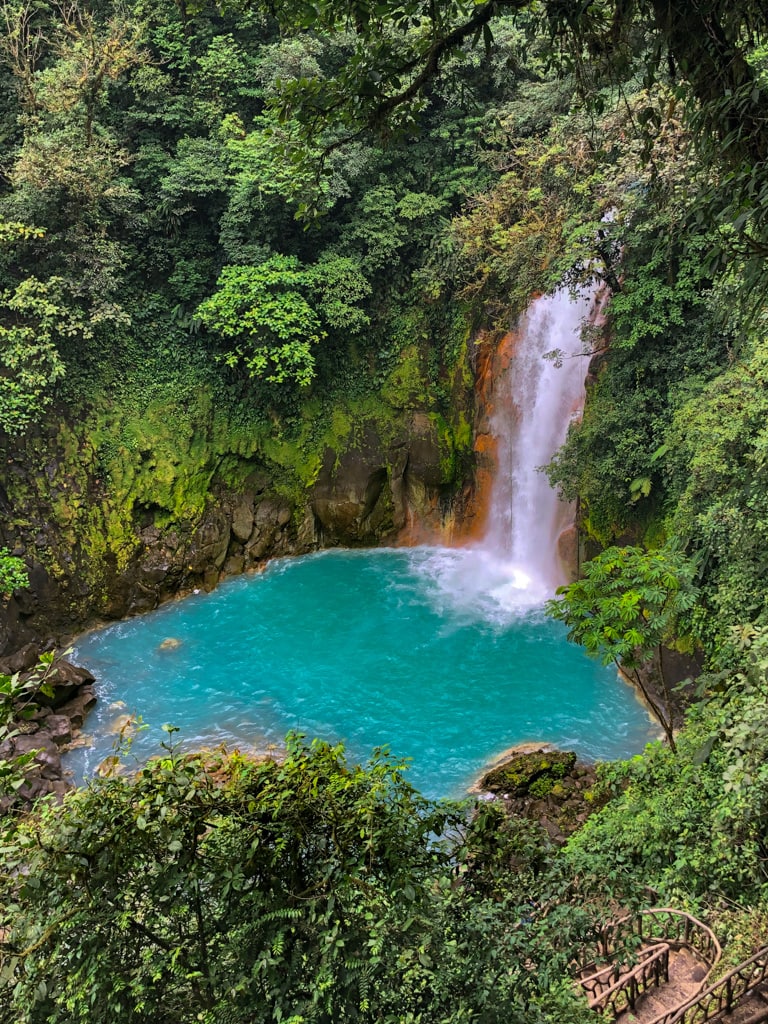
Is Costa Rica safe for families?
It’s a question I answer a lot- and I always say yes. Costa Rica with kids is safe- and really for all travelers.
However- safety means different things to different types of travelers, so in this article, I will outline a few general travel safety concerns for parents traveling with their kids, and how those situations play out specifically in Costa Rica.
Related post: Coronavirus in Costa Rica
Costa Rica Safety Issues – General Information
Costa Rica is located in Central America, bordered on the north by Nicaragua and the south by Panama. Costa Rica is governed by a democracy and is a peaceful neutral country. All military was abolished in 1948, and ticos are insanely proud of their commitment to peace. It’s by far the safest of all the countries in Central America.
In addition, one of Costa Rica’s main sources of income is from the tourist industry- they have spent millions of dollars to develop an infrastructure that is attractive to foreign tourists. It’s not in the country’s best interest for the country not to be safe and welcoming to tourists, so the vast majority of locals want to keep tourists safe and happy.
As for weapons- it is fairly difficult for the average Costa Rican to obtain a gun, and many ticos don’t feel the need for one anyway. The overarching message in Costa Rica is one of peace- which is a very refreshing take on life. I mean- there’s NO ARMY.
Geography-wise, Costa Rica is located in Central America and quite close to Colombia, which is the gateway to South America. Costa Rica is not immune to the drug trade using the oceans to get drugs to North America, and it’s not immune to immigration problems that come with a stable country located in an unstable region of the world.
For that reason, it’s important to take the same types of precautions you would take in any foreign country, especially if you don’t speak the language. It’s not wise to carry large amounts of cash on your person, not a great idea to wear flashy jewelry or walk through the city texting on an expensive cell phone, etc.
Lock your valuables when possible, do not leave bags unattended, and use the same level of common sense you would exhibit in many other parts of the world when traveling.
Here’s a helpful safety video the government of Costa Rica put together for tourists:
You might also like: Costa Rica Weather
Theft In Costa Rica
The main tourist annoyances in Costa Rica stem from petty theft. There is a big market in Costa Rica for jewelry, electronics, passports and of course, everyone loves cash and credit cards.
Despite many national regulations in place to curb the use of credit cards by thieves, many petty criminals will have a store they know will accept a credit card in someone else’s name so the deterrents you see in regular stores are not applicable to them.
A few safety tips related to theft:
Don’t carry large sums of cash in dollars or colones. 85% of the country has access to ATMs, so it is safer to use a cash machine frequently than to have a lot of cash on your person. If you do have a lot of cash, make sure not to put it all in one place.
Make a list of your credit card companies and the phone number to call immediately if your card is lost or stolen. Keep this separate from your cards.
Make a photocopy of your passport page with your photo and ID numbers and keep it handy. You won’t generally be asked to present your passport throughout Costa Rica, so I make a photocopy of my passport page and next to it have a copy of my entry stamp. I carry this with me as I travel, and leave my passport locked in a safe place.
Finally, if you are a US citizen, I generally enroll in the STEP program (Smart Traveler Enrollment Program) through the state department which sends you travel and safety information for the place you are traveling.
Also- if you are robbed in Costa Rica, you can make a police report but don’t expect anything to actually come out of the report.
A note about theft on the beach- do not ever leave your valuable belongings unattended at the beach while you are swimming. You are better off leaving everything in your hotel room safe.
RELATED POST: Costa Rica Currency
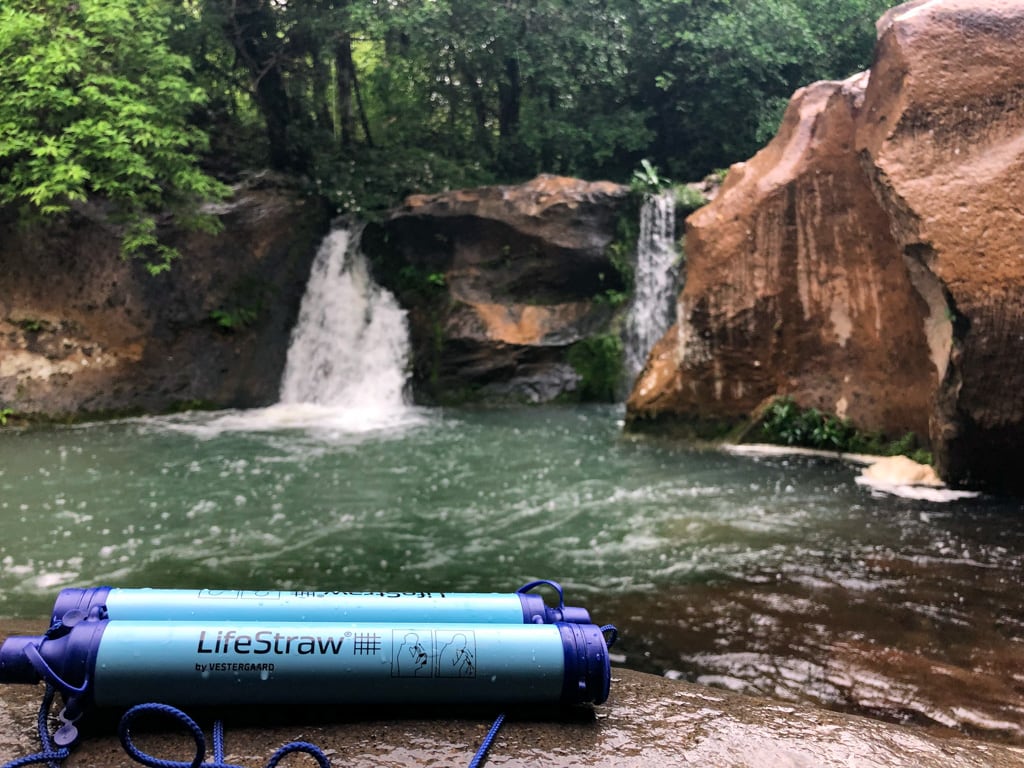
Water and Food Safety in Costa Rica
Costa Rica has potable water in all areas– it is safe to drink the water. Water is regulated by the government and is frequently checked for purity. Costa Rica is the safest water to drink in any of the Central American countries.
You will find some rural areas or rural beach areas where the water is not great I generally just ask a local how the water is in a particular area. For example, when I was in a hostel in Dominical once, the water out of the tap in my room was brown. I didn’t drink it.
Bottled water is available throughout the country, but since Costa Rica has a strong focus on sustainability, you can lessen your impact by avoiding the use of single-use plastic water bottles. Bring your own water bottle and ask your hotel if they have filtered water, or buy large jugs of water to have on hand. We also use the LifeStraw water bottles which filter when you drink.
Related post: Saving Money In Costa Rican Restaurants
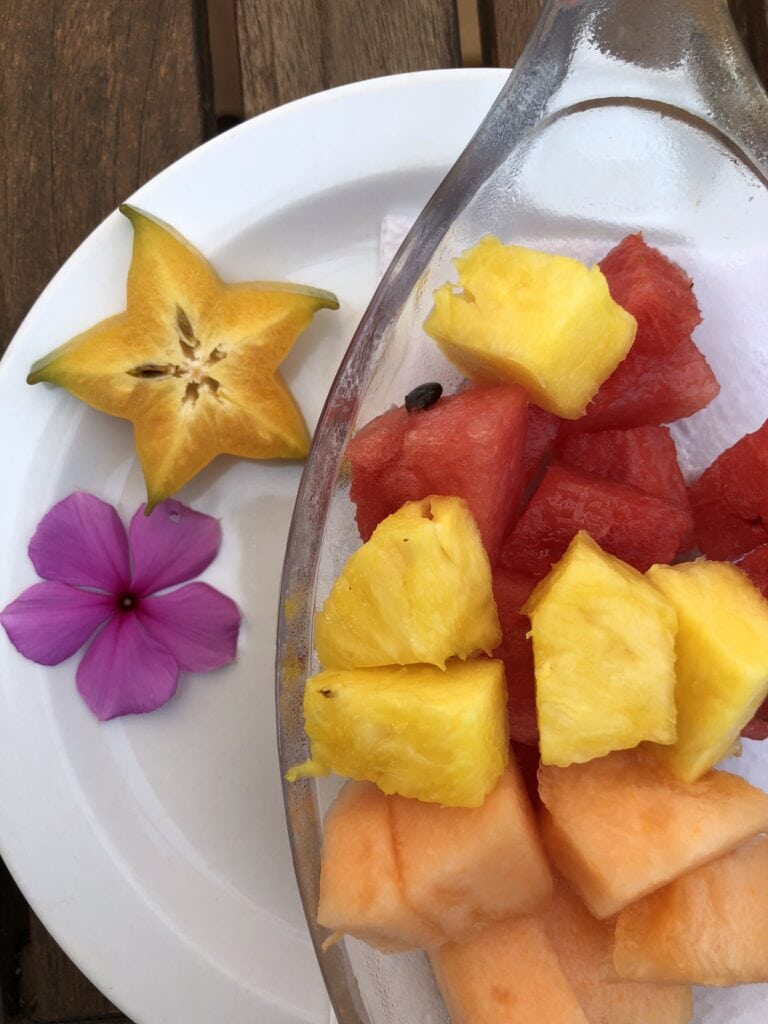
As for food safety- Costa Rica has a national program for food safety in restaurants, and general foodborne illnesses are not as widespread as they are in similar third-world countries.
Beware of undercooked meat and fish, and if food smells or tastes bad avoid eating it. However, you will find that Costa Rican food is safe to consume.
Related post: 30+ Foods To Try In Costa Rica
Transportation Safety Around Costa Rica
There are several methods of transportation in Costa Rica- bus, car, plane, boat, ferry, taxi/Uber walking and biking. Costa Rican roads are generally safe for everyone, although can be full of potholes in the rainy season. It’s annoying more than dangerous.
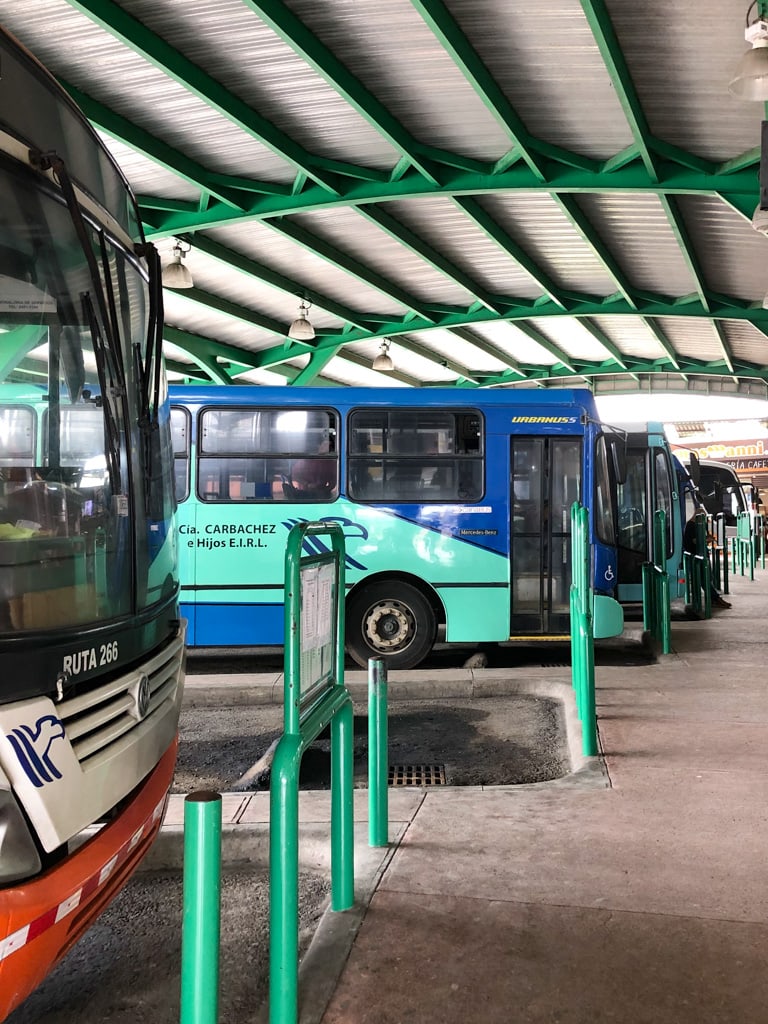
Public Transportation Tips
When riding the bus, make sure to buy your bus ticket directly from the ticket counter to avoid any problems. If you have large luggage on a bus, it is customary for the driver to put the bag underneath the bus and give you a luggage tag that allows you to claim your luggage at your final stop.
If you decide not to put your luggage under the bus, there are luggage racks above the bus seats. Place your bags above your seat on the opposite side so that you always have your eyes on the bags.
In some areas close to the borders, everyone is required to disembark the bus for a passport and luggage check. If you get off the bus, make sure to take your luggage with you, even if it means losing your seat. Petty thieves will often ride these bus routes baking on the fact that tourists will leave their things on the buses, and take advantage to steal.
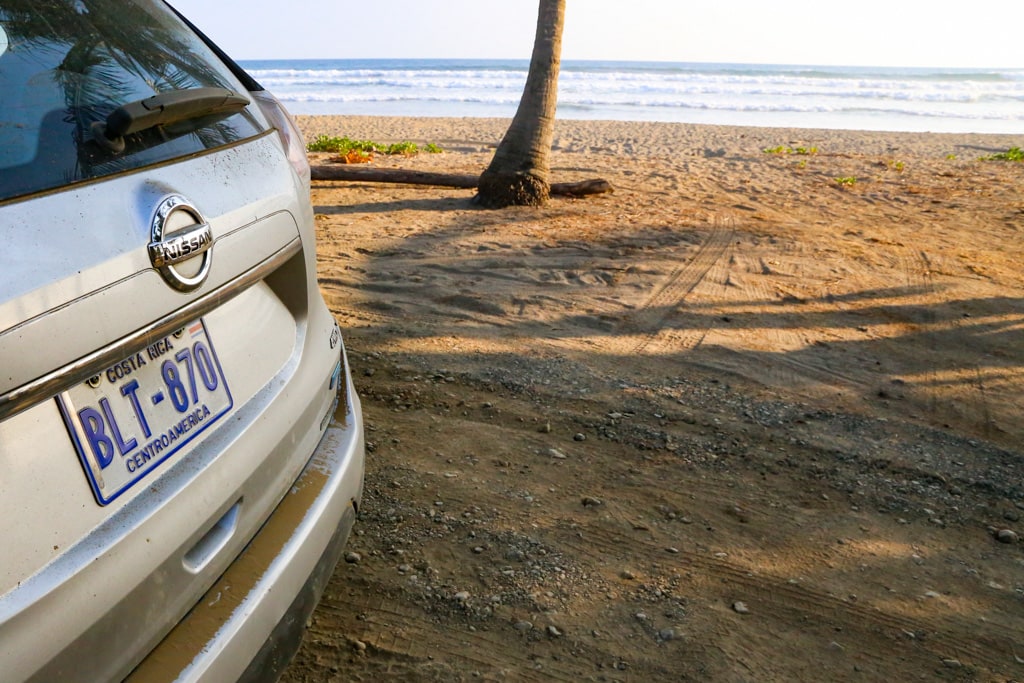
Rental Car
If you decide to rent a car in Costa Rica, (which I highly recommend) you can be sure that the rental car agencies will be very clear with you about how to keep the car safe- so ask them any questions you might have.
My main tips are the following:
- If you have valuables in your rental car, always park it where you can see them, or in a secure parking lot with a guard and cameras.
- Make sure your car looks empty when you park it- put belongings in the trunk.
- Do not put belongings in the trunk at the place you park- put them away before you park so no one sees you put them in there at your destination
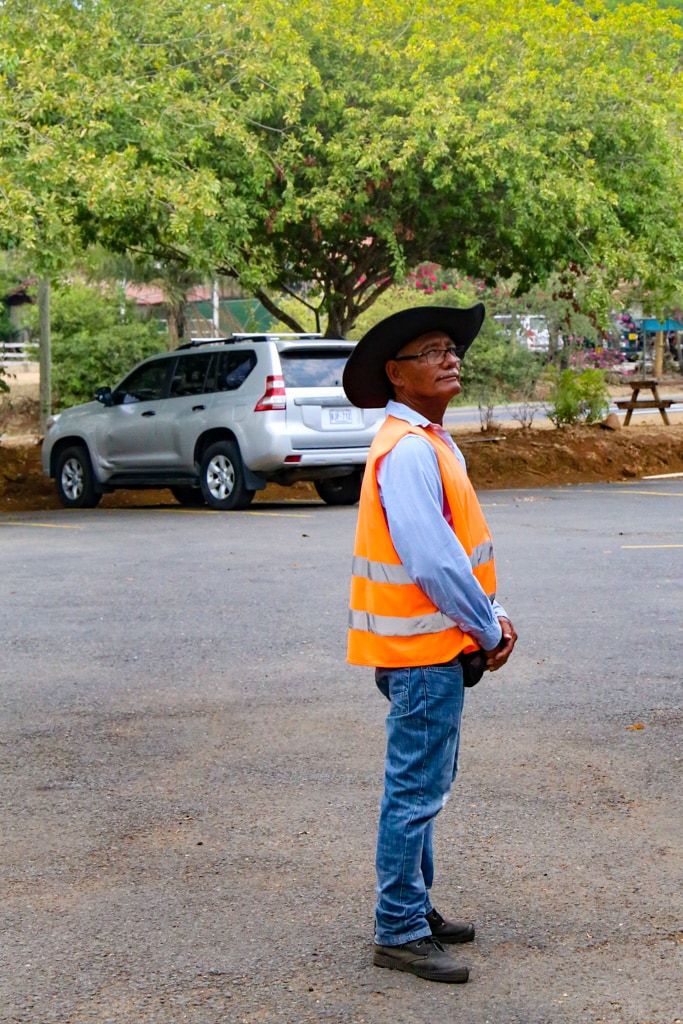
You will often see a man or woman in a safety vest in parking lots or on certain stretches of streets in smaller towns and cities. These people are called “wachiman.”
They generally have a territory, are dressed in regular clothes except for a brightly colored construction vest, and are somewhat reliable. You can pay them about 500 colones to watch your car ($1), but they are not actually responsible if anything happens.
If you don’t pay them you run the risk of something worse happening. They are a national annoyance, but harmless.
Related post: Driving In Costa Rica – Complete Guide
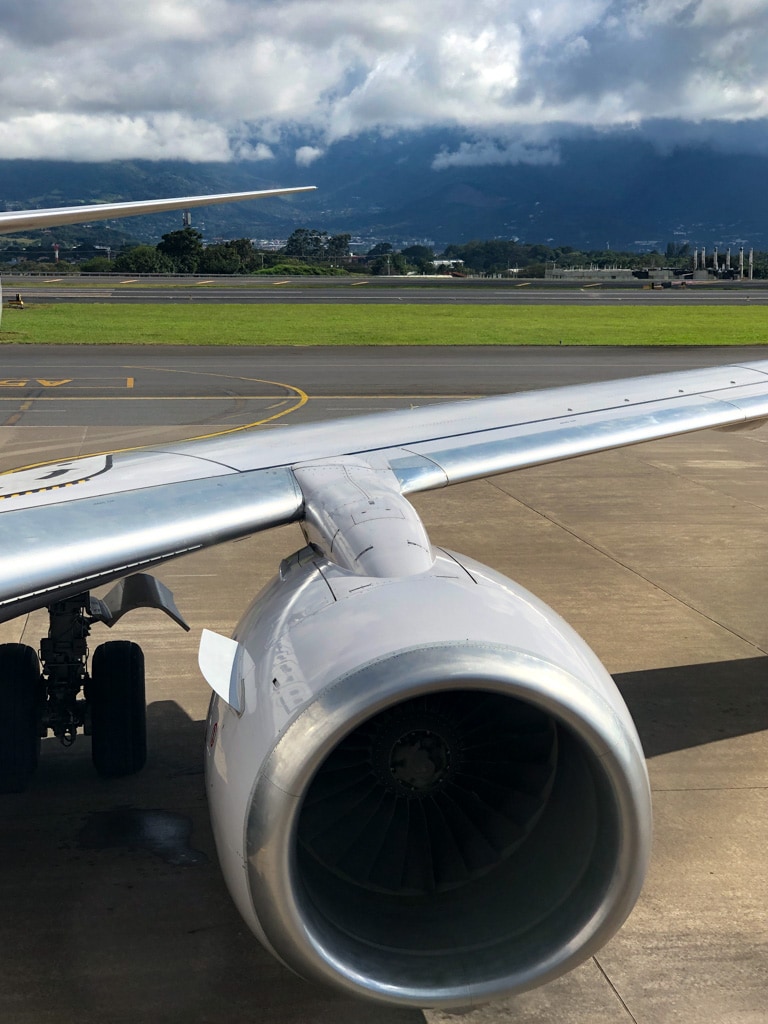
Domestic Flights
You can take small prop planes throughout Costa Rica to avoid road travel. Please do your research about these planes to determine if you feel comfortable embarking. I have never taken one.
Costa Rican Taxi Safety
Taxis in Costa Rica are generally safe. Uber is a cheap option and safe, but not popular with local taxi drivers. Costa Rican taxi drivers are unionized throughout the country- they drive bright red taxis with yellow taxi signs on the side. They have meters with regulated rates and accept cash only.
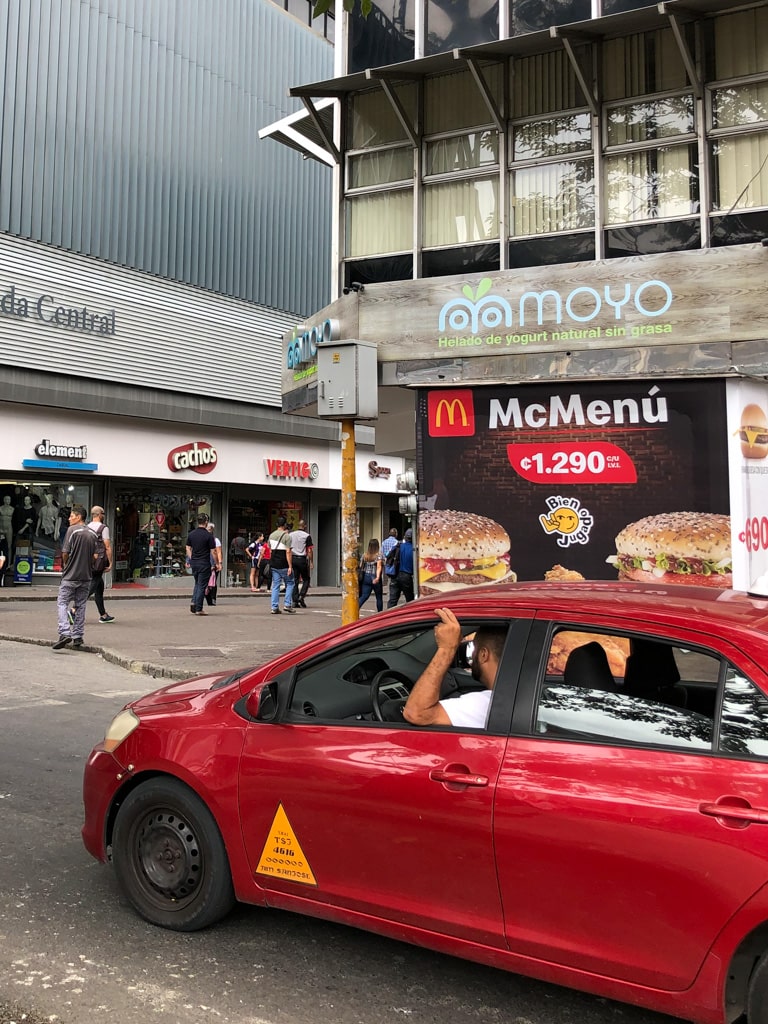
There is a group of taxis called “taxis piratas” which means they are not regulated by the government. These taxis generally charge less but are unregulated and should be used with caution.
The taxis to and from the international airports are bright orange and fares can be purchased inside the airport. These are the best taxis to use to and from the airport when you have valuables in your luggage.
My best advice is to use a licensed taxi when possible, and if you aren’t sure how to get one ask the people at your accommodations to call a taxi they trust for you. This is especially important for solo female travelers.
Related post: Basic Spanish Phrases For Travel – Costa Rica

Illnesses
Zika, Dengue and Malaria are all illnesses in Costa Rica identified by the Centers for Disease control as possibly problematic. Dengue is especially rampant during the rainy season and anywhere there is standing water.
It is important to check the recommendations from the CDC before you travel to Costa Rica, and to avoid mosquito bites at all costs (we swear by ParaKito products)
However- Zika and Malaria are not common in Costa Rica as far as I have seen. Exercise your best judgment when making the decision about whether or not to take malaria pills before you leave- the pills can often do more damage to your body than the threat of malaria.
Related post: All about Mosquitos In Costa Rica: How Bad Are They Really?
Costa Rican Hotels and Vacation Rentals
People always wonder if they are going to get robbed in their hotels and vacation rentals, and it’s a very real fear. Most higher-end hotels have safes, and I recommend travelers keep their valuables in the safes.
Additionally, many hotels have guards. Being a guard is a good job in Costa Rica- it pays well, there is health insurance, and it’s a relatively easy job. Almost every employed guard at a hotel in Costa Rica is more interested in keeping that job than robbing you.
Vacation rentals are a bit of a different story. In most areas, everyone knows when a house is a vacation rental and when tourists are in that house. Keep all doors and windows locked, make sure nothing is in your car, and use a safe if available. If not, carry your valuables and passports with you at all times.
RELATED POST: Costa Rica With Kids- The Complete Guide
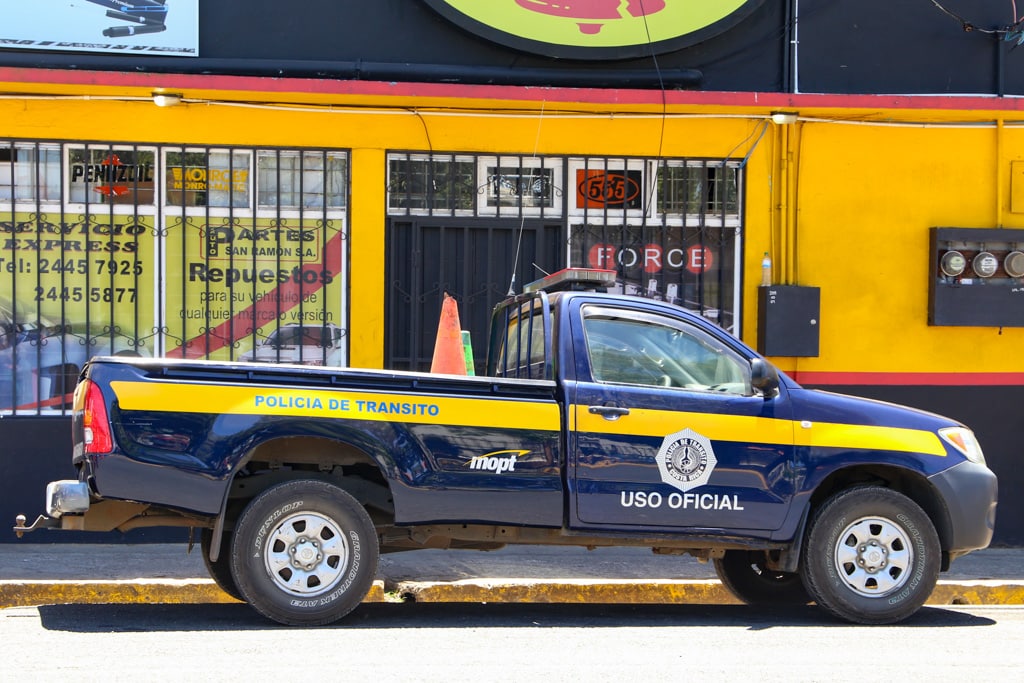
Police in Costa Rica
Similar to what I said above about guards in Costa Rica- being a police officer in Costa Rica is a very good job. The salary is great and the pension benefits are outstanding. Most police officers are more interested in keeping their jobs than running a corrupt side hustle.
You will see a strong police presence throughout Costa Rica- on foot, by bike, and in trucks. I rarely, if ever, have seen a negative interaction between police and civilians, and the officers are generally out and about to keep the peace.
Up until about 3 years ago, you would rarely see police officers with guns- they always carried sticks. However, crime is increasing- levels of violent crime have elevated Costa Rica from a Level 1 country to Level 2 from the US State Department. With an increase in violent crime in some areas of Costa Rica (see below) the country has made a decision to have officers carry guns now.
Police may approach you to see if you need help, if you are drunk in public, or if you may have been witness to a crime. Female travelers may be wary of police if they are traveling alone, however, there is a huge increase in female police officers in Costa Rica. If you are uncomfortable, ask for a female.
Also- 911 works in Costa Rica and there are English-speaking operators.
RELATED POST: Awesome Places to Stay In Costa Rica
Safety Tips For Parents In Costa Rica
Costa Rica has such a strong focus on staying safe and living the pura vida life that it’s the ideal place for families to take their young children. We have been taking our girls since they were 3 months old, and it is a wonderful place for kids. However, there are a few precautions we take:
In crowded areas, make sure to stay physically connected to your small child as they can easily get lost. We have used a leash, a fold-up stroller, a baby carrier and more to make sure we keep track of our girls
Carry hand sanitizer, soap, wipes, and toilet paper. Due to the humid climate and the lack of hot water in sinks in Costa Rica, there just seem to be more germs around. We sanitize and wash our hands a lot. Decently clean public toilets can be hard to come by so I carry toilet paper everywhere.
Costa Ricans love children and babies- they will talk to them, exclaim how beautiful they are, and ask tons of questions. It’s fun- but you don’t have to give any information you don’t want to. You are never under any obligation to let a stranger touch or hold your baby.
Car seats in Costa Rica are not the 5-point harnesses we use here. If you feel your child is best served in a car seat, you should bring your own.
Related post: Should I Take a Stroller to Costa Rica?
Teenagers- exercise caution with how and when you allow your teens to wander on their own. Many beach towns offer ample opportunities for kids to get their hands on drugs and alcohol, (the drinking age is 18 legally but American teenagers tend to look older than tico teenagers).
Sex trafficking laws in Costa Rica are extremely harsh, but that’s also because child trafficking is a problem there. It is in the States too, so just use caution and set strong limits with your teens.
Related post: Spanish Phrases For Travel In Costa Rica With Young Children
Areas To Avoid in Costa Rica
It is best to be extremely careful in San Jose, there are many areas that are not safe, especially at night. If you aren’t sure if an area is safe, ask the hotel where you are staying.
Avoid being alone and intoxicated in Costa Rica- it’s just common sense but it has to be said.
Related post: 20 Marvelous Beaches on Costa Rica’s Pacific Coast
Costa Rica Safety Resources
Here are a few safety resources for travel in Costa Rica:
- Center for Disease Control – Costa Rica Report
- United States State Department Travel To Costa Rica
- Australian Department of State Travel to Costa Rica
- British Department of State – Travel to Costa Rica
Pin it!
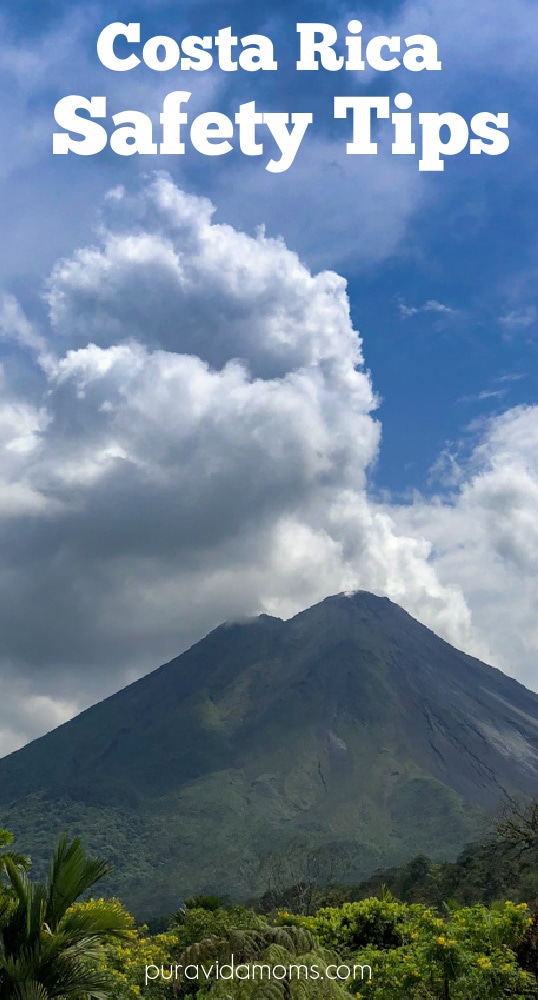

Christa Jimenez
Welcome! I’m Christa, a Spanish teacher married to a handsome Costa Rican and mother of two bilingual daughters. We’ve spent over 25 years living in and traveling to Costa Rica with our daughters, and this website is my love letter to all things Costa Rica- and to bilingual parenting too. You can read my full story here. Thanks for stopping by!



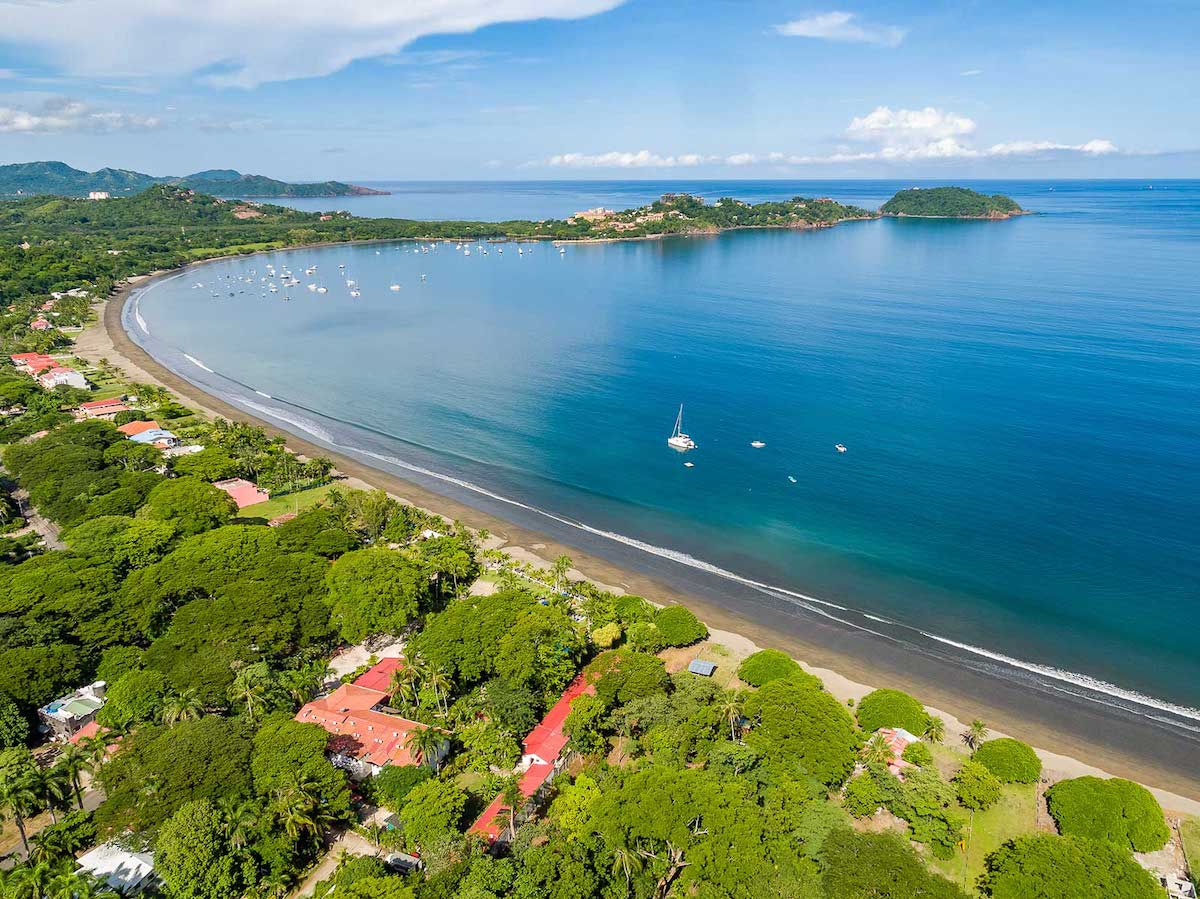
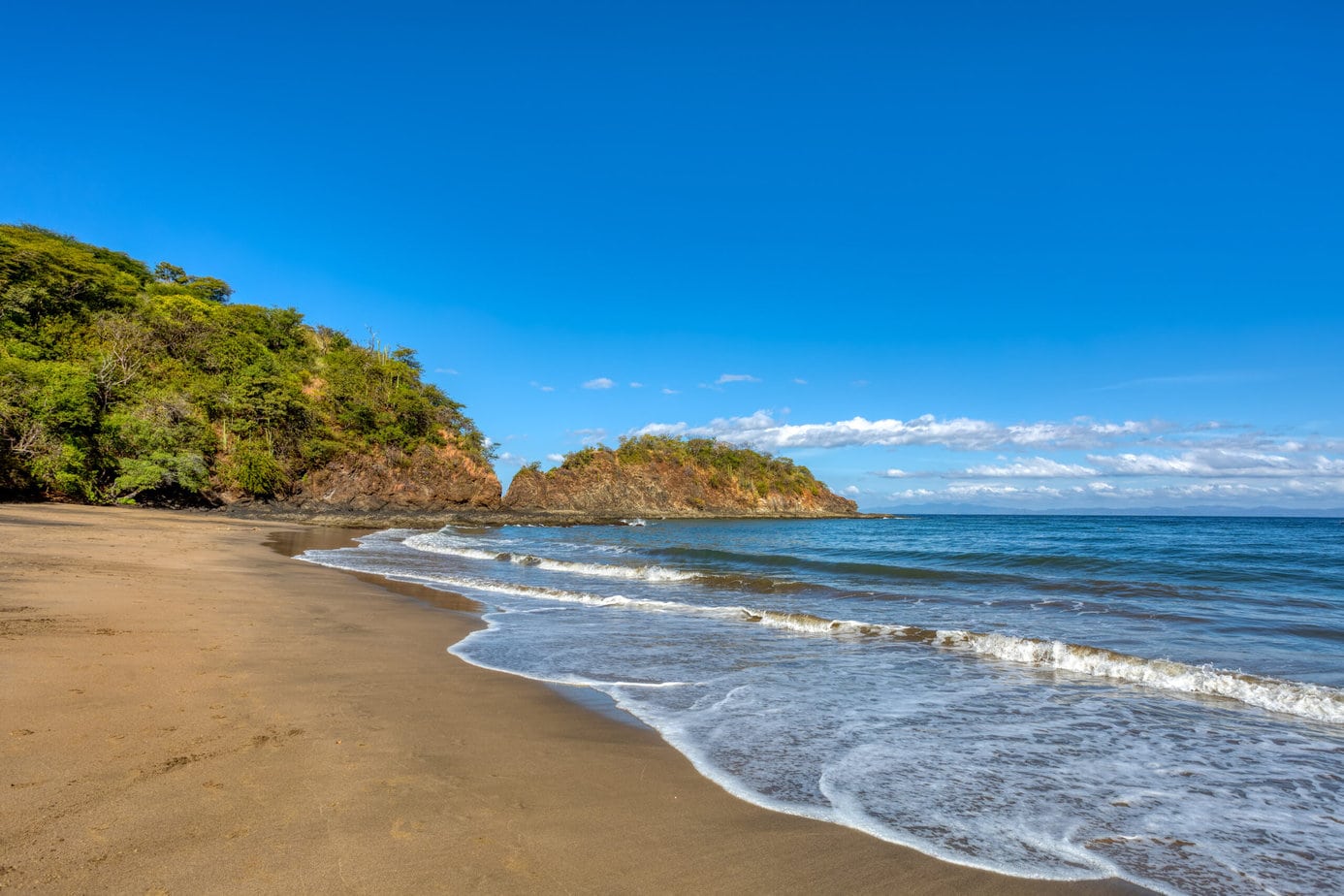
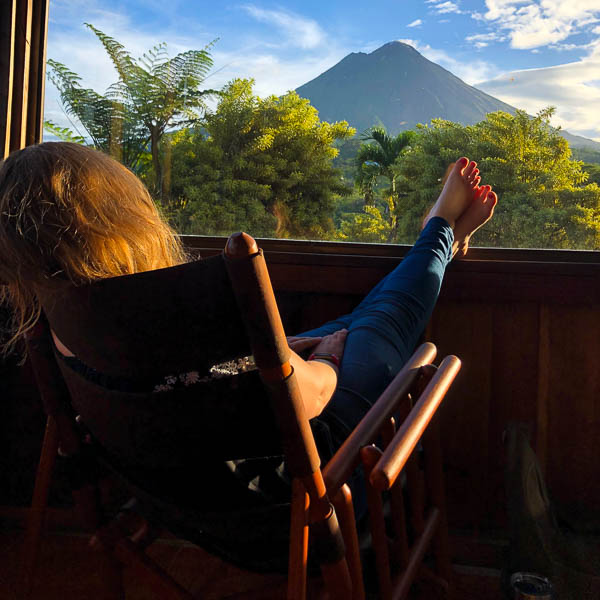
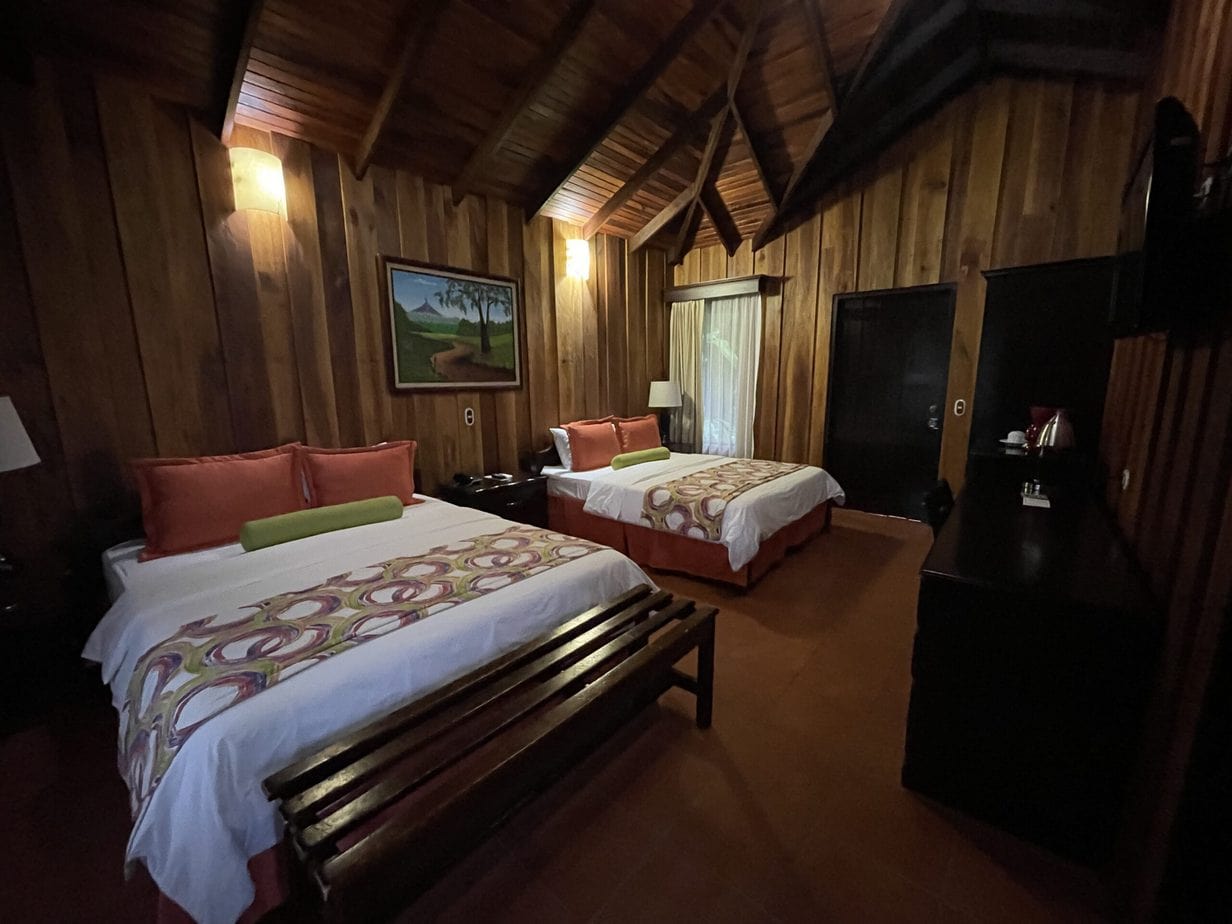
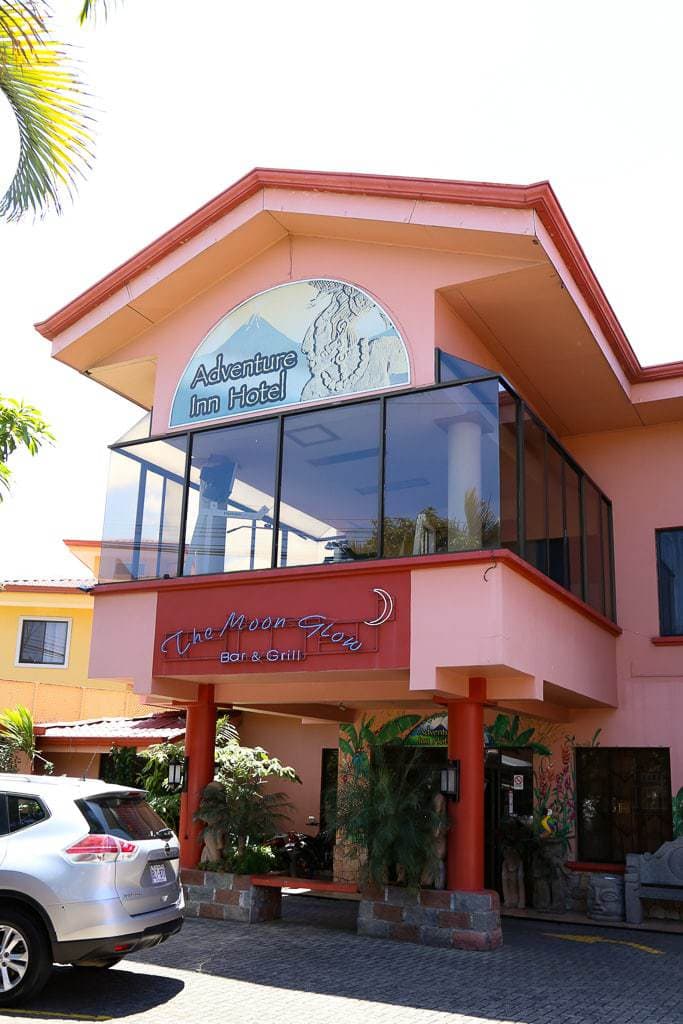
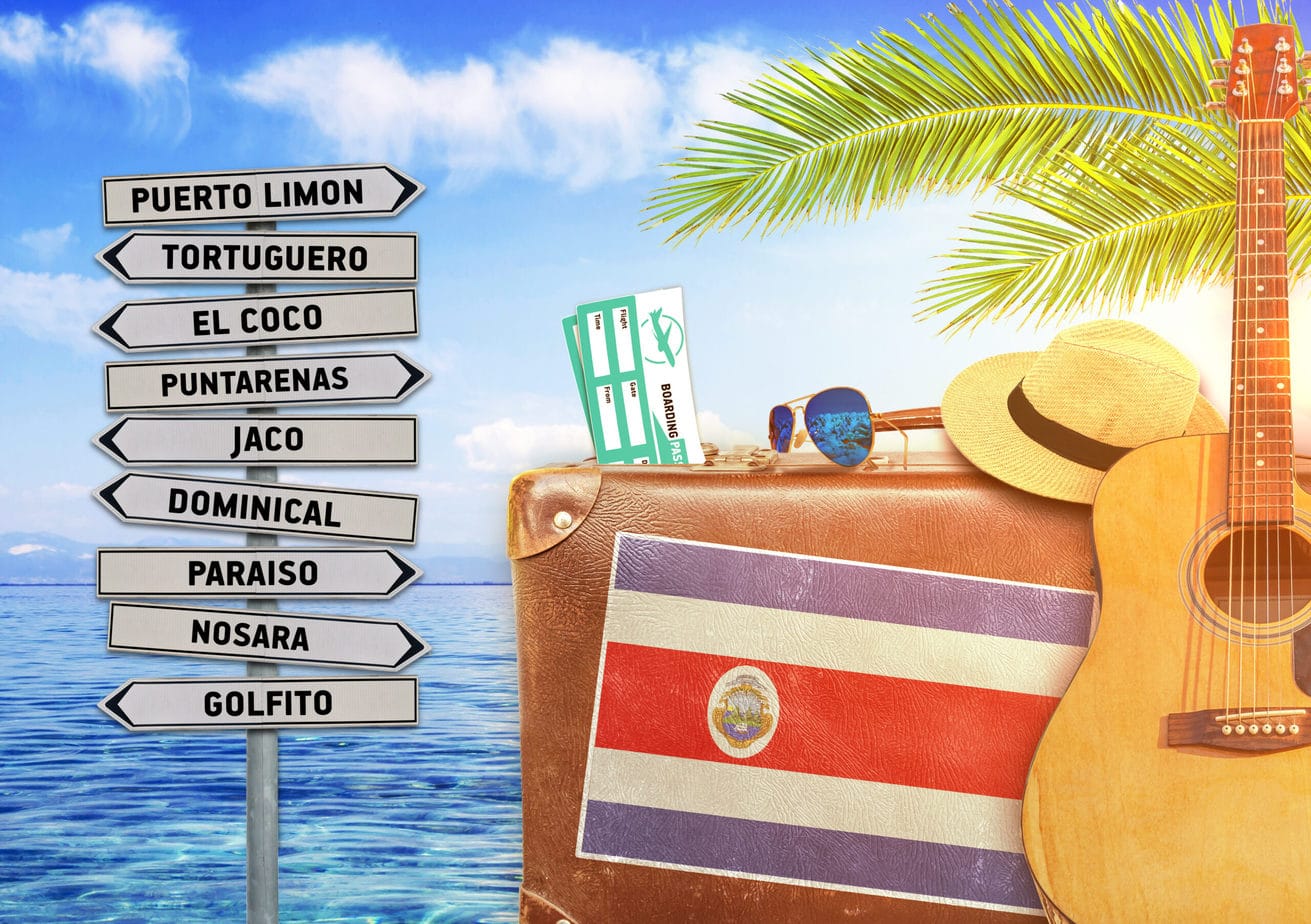
Hi, I have an 18 month old.
I am concerned that if she gets ill , is there easy access to a doctor at any time?
I go to CR every year with my partner, but w a toddler, it’s different.
Do you know of any high end resort that is very toddler friendly?
Thank you
Hi! Any pharmacy can get you what you need- they almost all have a doctor on site. We love Margaritaville with kids- the toddler pool is shaded and it’s right on the beach! https://www.puravidamoms.com/margaritaville-beach-resort/
Pura vida! ~Christa